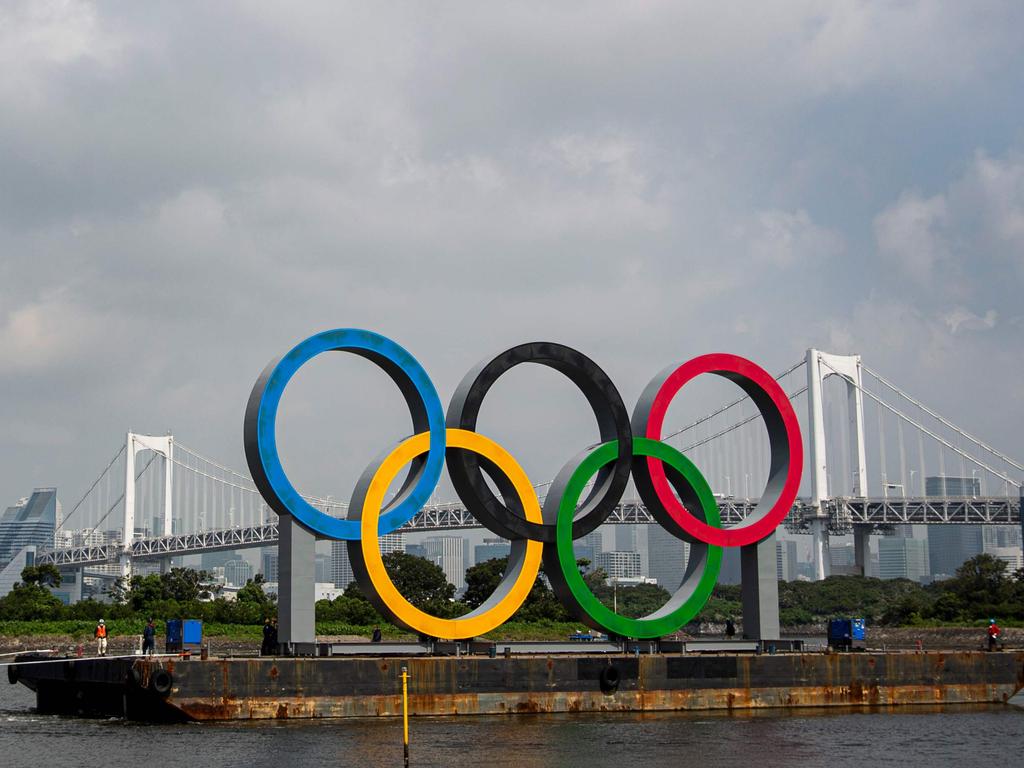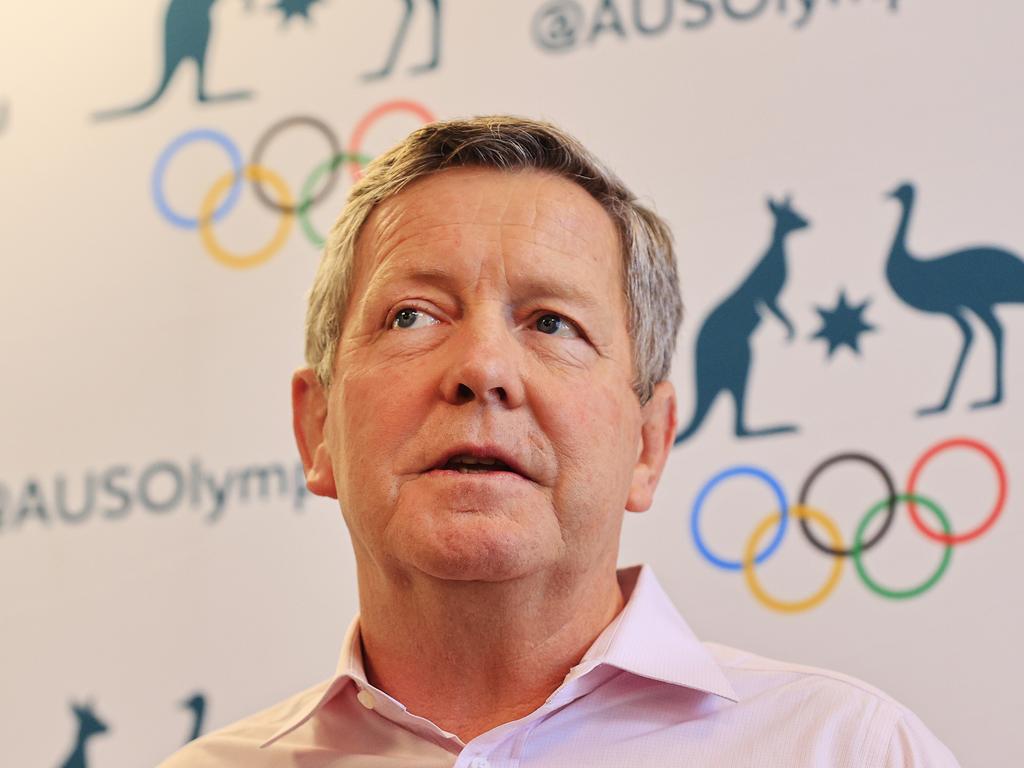Japan’s dilemma: how to call off Olympic Games while saving face
Organisers consistently declare the Games are on track to go ahead this year. But behind the scenes hope is all but gone.

For the time being, at least, there are no visible signs at all that Japan’s Olympic dream has died. In front of Tokyo Station the digital clock is still counting down the days, hours and seconds until the opening ceremony on July 23. The shops continue selling Olympic merchandise, from beer to T-shirts, still awkwardly branded Tokyo 2020, despite the year-long postponement.
The Tokyo organising committee, the IOC and the Japanese government consistently declare that the postponed Games is on track to go ahead this year. But behind the scenes the hope is all but gone.
Privately, and increasingly in public, athletes, politicians and sports officials are acknowledging a painful truth – that despite tremendous organisational will and effort, the continuing coronavirus pandemic makes it impossible for the Games to go ahead. The clearest articulation of this came from a senior member of Japan’s ruling coalition who told The Times this week that focus was shifting from pressing on with the postponed Games this summer to securing them in 2032, the next year for which the host city has yet to be decided.
“No one wants to be the first to say so, but the consensus is that it’s now too difficult,” the source said. “Personally, I don’t think it’s going to happen.” It will be a while before an official announcement comes; right up until then, the authorities will behave as though everything is going to plan. But, like a patient in the late stages of a terminal illness, the point will come when the vital organs begin to shut down.
The cancellation will be a devastating disappointment for athletes, a financial catastrophe for many businesses and a blow to the pride of the Japanese government, which was politically, as well as economically, invested in the successful hosting of the Games.
When the city won the right to host the 2020 Games, it was an opportunity to proclaim a moment of recovery from the tsunami and Fukushima nuclear disaster in 2011. There was a certain amount of grumbling resistance, of the kind that the Olympics provokes all over the world – objections to the spectacular cost, to the erection of extravagant new stadiums and to the way the Games is dominated by global corporations.

A study by Oxford University concluded last year that Tokyo’s would be the most expensive Olympic Games ever staged – even government audits, which are likely to be conservative, put the cost at £18 billion or more, three quarters of it public money.
In normal times the government could have counted on public opinion coming round and surging with enthusiasm and excitement when the Olympics got under way. But this is different. The principal concern now is not about cost overruns, but about the potential for the summer Games to become a massive superspreader event that would disseminate COVID-19 throughout Japan and then, as athletes and spectators returned to their home countries, across the world. People, perhaps many people, could sicken and die because of the Olympics.
Japan has faced down the pandemic far better than the countries of western Europe and North America. With about twice the population, it has less than a tenth the number of cases than Britain, and a twentieth the number of deaths. But this happy situation has come under threat from the winter wave which, by Japanese standards, has created a surge of new cases.
Yoshihide Suga, the Japanese prime minister, has declared a state of emergency for Japan’s biggest cities and urged people to work at home, eat at home and stay at home. He reluctantly abandoned a program of government subsidised travel and eating out, intended to keep restaurants and tourist businesses alive. To go to all these lengths, and then to invite athletes, sports officials and Olympic spectators from across the world, would be difficult to justify, even for a political leader who was riding high.
Suga is not that man. Since coming to office last September, his support ratings have fallen from 74 per cent to 34 per cent, largely because of his irresolute handling of the pandemic. Political rivals within the Liberal Democratic Party are positioning themselves to challenge him at an election for its leadership scheduled for September. The month after that, at the latest, Japan must hold a general election.
Japan has still not approved COVID-19 vaccines, which are not expected to be administered even to medical workers until the end of February at the earliest. There is no clear timetable for the general population. Polls show that four out of five of Japanese are against the Games happening in July. Once, calling off the Olympics would have been politically self-destructive; now, Suga may calculate that it could even improve his popularity.

In some ways, cancellation is as fraught and difficult as going ahead, and a formal announcement may take a while to come. For a start, there are the massive legal and financial implications of calling off such an event. The IOC and Tokyo will need to have worked out exactly what they are going to say to sponsors such as Coca-Cola, Visa, Toyota and NBC before they go public. Then there is the embarrassment. Even if it is the result of a natural disaster, who would wish to be the IOC president, Thomas Bach, when the moment comes to announce the first ever peacetime cancellation of an Olympics? When the postponement was announced last spring, it came after Canada and Australia had announced that they would not send athletes to the Tokyo Games if it were to go ahead as scheduled – these unilateral declarations by foreign organisations were face-saving because they eased responsibility for the decision that had to be made. As the senior source told The Times this week: “If someone like President Biden was to say that US athletes cannot go, then we could say, ‘Well, now it is impossible.’ ”
Personal and tragic elements add to the difficulty. If the Tokyo Games is cancelled then the Olympics that will be declared to mark “recovery” from the pandemic will be the 2022 Winter Games in Japan’s great strategic rival China – another bitter mouthful for Japan to swallow.
The president of the Tokyo 2020 committee, and the driving force behind the winning and planning of the 2020 Games, is Yoshihiro Mori, a former prime minister and powerbroker within Suga’s Liberal Democratic Party (LDP). Mori has lung cancer – he has said that he never expected to live this long. For some politicians, cancelling the Games will rob a respected leader of his dying wish.
One sliver of hope remains. This week the senior IOC member Dick Pound floated an idea that he had formerly dismissed – an Olympics without spectators. This would be a neat second-best for the IOC, which makes most of its money from the sale of broadcasting rights. It would be much less appetising for Tokyo, which would still bear the risk of 11,000 incoming athletes, without enjoying the income from ticket sales or a tourism boom.
A decision must come eventually – surely before 10,000 runners set out on the torch relay due to begin at the end of March. Week by week, the facade of unanimity is cracking. The mayor of Japan’s second city, Osaka, has come out against the Games. Suga’s chief rival within the LDP, Taro Kono, has admitted that “it could go either way”.
Even those with most to lose by cancellation, Japan’s Olympians, are torn. “I want the Games to be held with support from everyone,” Hitomi Niiya, a 10,000m runner, says. “There’s something wrong if it’s only athletes. If the people at large don’t want it, the meaning of it is lost.”




To join the conversation, please log in. Don't have an account? Register
Join the conversation, you are commenting as Logout